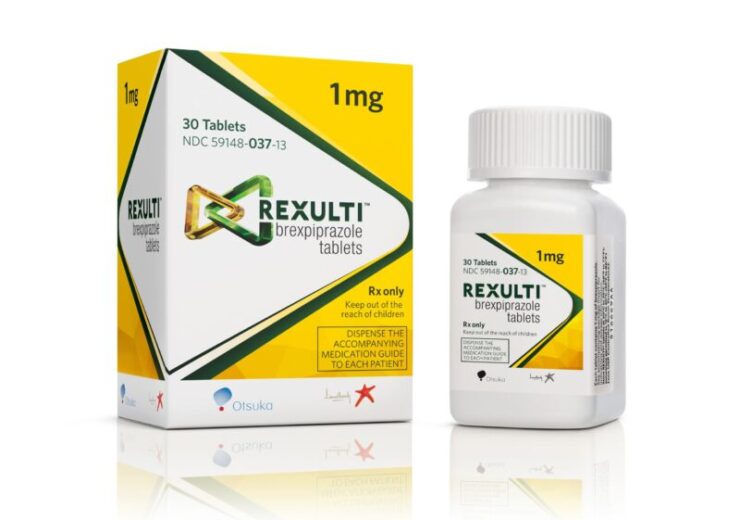The analyses revealed that Rexulti was linked to reductions in both overall neuropsychiatric symptoms and agitation symptoms when compared to placebo over 12 weeks

A product shot of Rexulti. (Credit: H. Lundbeck A/S)
Otsuka said that Rexulti (brexpiprazole) has demonstrated its efficacy in two Phase 3 trials involving patients with agitation related to dementia due to Alzheimer’s disease.
The company’s US-based subsidiary Otsuka Pharmaceutical Development & Commercialization and Lundbeck US presented new post hoc pooled analyses of the two studies. Discovered by Otsuka, brexpiprazole is being co-developed by the company alongside Lundbeck.
Rexulti is said to be the first US Food and Drug Administration (FDA)-approved therapy for agitation associated with dementia due to Alzheimer’s disease.
It received FDA clearance for the same indication in May last year.
Otsuka and Lundbeck unveiled the caregiver impact and post hoc analyses findings on the efficacy of the drug.
The analyses revealed that Rexulti was linked to reductions in both overall neuropsychiatric symptoms and agitation symptoms when compared to placebo over 12 weeks.
Additionally, the therapy was associated with a higher decrease in the overall score for occupational disruptiveness and caregiver distress in comparison to placebo, with separation seen as early as Week 4.
Its efficacy was also established across different patient characteristic subgroups like dementia severity, care setting, concomitant/prior medication use, and co-occurring neuropsychiatric symptoms.
Furthermore, Rexulti was linked to greater improvements in agitation symptoms in both baseline-symptomatic patients with and without psychosis symptoms.
Otsuka executive vice president and chief medical officer John Kraus said: “These data reinforce the urgency to treat agitation separately from dementia due to Alzheimer’s disease and gives prescribers further confidence to choose an FDA-approved therapy to help address these symptoms.
“We greatly appreciate the efforts of the caregivers and their families that participated in these important clinical trials.”
In a separate development, Otsuka Pharmaceutical Development & Commercialization reported interim results from its Phase 2b/c study of quabodepistat (QBS), in combination with delamanid and bedaquiline, to treat pulmonary tuberculosis (TB).
Otsuka said that the new investigational compound may shorten tuberculosis treatment duration.
The data showed that a four-month dosing of QBS combination can yield similar safety and efficacy results of a standard four-drug regimen in participants with drug-susceptible TB.
Additionally, the sputum culture conversion rates of the therapy were on par with existing standard four-drug TB therapy.
The full results of this multicentre, Phase 2b/c, open-label, randomised, dose-finding trial are expected by the end of this year.
